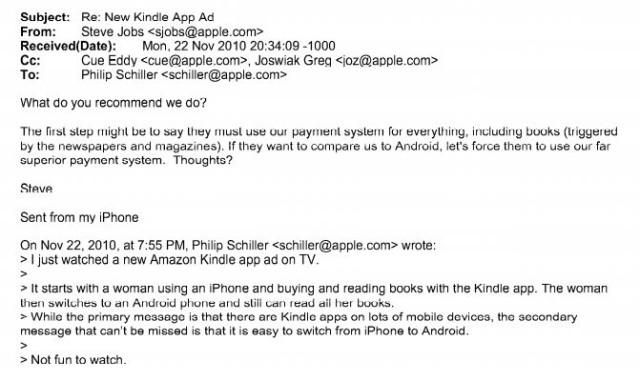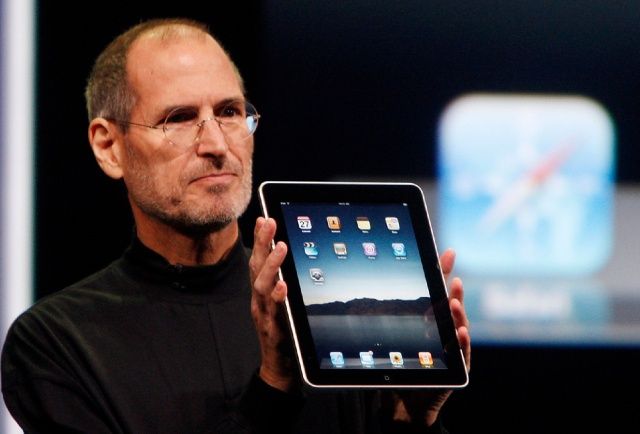When last we left the Department of Justice’s e-book antitrust case with Apple, things weren’t looking good. After Apple was found guilty of price fixing, the DoJ dismissed Apple’s rebuttal. Apple is on track to lose the ability to sell e-books in the iBookstore for several years. Third-parties like Amazon are also to be given back the ability to sell their e-books directly to iOS users within their apps. The outcome of this case will likely be a blow to Apple’s business and an even bigger blow to its pride.
Today the DoJ filed a revised remedy proposal for Apple. Besides reducing the amount of time Apple has to stay out of the e-book market from ten years to five, there are no other major changes. The most interesting tidbit is an email between Steve Jobs and Phil Schiller from 2010.
First, a quick history lesson. In 2011, Apple changed its rules to make it so that any content sold in iOS apps had to go through the iTunes Store. In turn, Apple got a 30% cut of all transactions. That’s why you can’t buy e-books in the Kindle iOS app; Amazon can’t use its own payment system.
Today the DoJ cited an email from Steve Jobs as evidence that Apple changed its in-app purchase rules to retaliate against an Amazon ad campaign for the Kindle.

The conversation even goes so far as to suggest that Amazon was the sole reason Apple changed its policy on in-app purchases. There’s obviously still tension between the two companies because Amazon stands to lose a significant competitor in the marketplace if the DoJ wins this case.
Basically, the DoJ thinks this move was unfair to Amazon. Apple wanted “to make it more difficult for consumers using Apple devices to compare ebook prices among different retailers, and for consumers to purchase ebooks from other retailers on Apple’s devices,” according to the filing.
The arguments involved in this case run very deep, and you can read the DoJ’s whole filing if you want to get more of a handle on the situation. The DoJ is certainly very serious about changing the way Apple does business online. This quote about the DoJ’s view of Apple is particularly striking:
“Quite simply, Apple wants to continue business as usual, regardless of the antitrust laws. Under these circumstances, this Court should have no confidence that Apple on its own effectively can ensure that its illegal conduct will not be repeated. There must be significant oversight by someone not entrenched in Apple’s culture of insensitivity to basic tenets of antitrust law.”
Via: Los Angeles Times


